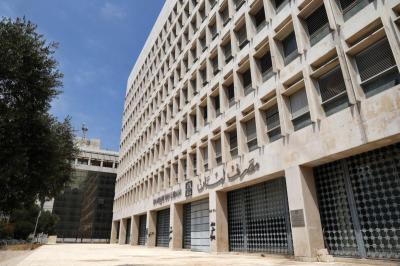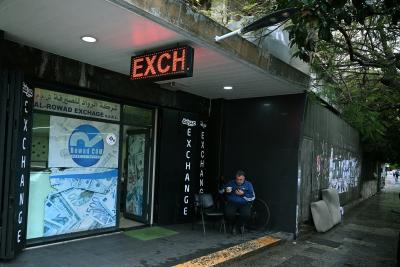Lebanese Lira’s Exchange Rate Hostage to Balance of Payments
The effects of a balance of payments (BoP) deficit largely depend on its underlying causes. If the deficit stems from loans or foreign investments, it may indicate that the country is increasing its wealth abroad, which could strengthen its current account through the inflow of interest and profits. Conversely, a current account deficit suggests that the nation is spending more than it earns.
Currency Liberalization and IMF Demands
Amid discussions on economic reforms, the issue of liberalizing the Lebanese pound's exchange rate against the U.S. dollar has resurfaced, particularly as it remains one of the International Monetary Fund’s (IMF) key demands. While economists generally favor currency liberalization for its ability to correct economic imbalances, it is not always the best option—especially since the burden of such a move ultimately falls on the people.
The BoP measures the movement of foreign currency into Lebanon, particularly about the central bank’s reserves. A positive balance indicates that foreign currency is entering the country, boosting the central bank’s reserves accordingly. A negative balance, on the other hand, signals an outflow of foreign currency, reducing reserves. Hence, the BoP is a financial statement summarizing a country’s economic transactions with the rest of the world over a given period, typically one year. It encompasses all commercial and financial transactions between residents and non-residents, including trade in goods and services, capital transfers, and financial assets.
Components of the Balance of Payments
The BoP is divided into three main components:
First, the Current Account, which records trade in goods and services, income from investments and employment, and current transfers in terms of exports and imports of goods, trade in services, investment returns, foreign aid, and remittances.
Second, the Capital Account, which includes capital transfers and transactions in non-produced, non-financial assets, such as debt forgiveness, migrant asset transfers, and sales of intellectual property rights.
Third, the Financial Account, which tracks investment flows, including foreign direct investment (FDI) in physical assets like factories or real estate, portfolio investment in financial assets such as stocks and bonds, and other financial transactions like loans and deposits.
Understanding the BoP is crucial for assessing a country’s economic health, adjusting government policies, and making informed trade and investment decisions. Economic theory dictates that the BoP should be balanced—meaning that the sum of the current, capital, and financial accounts equals zero when statistical discrepancies are accounted for. If a country imports more than it exports, it will face a current account deficit, which must be financed through borrowing or asset sales, impacting the financial account.
Lebanon’s Balance of Payments Deficit
Historically, a BoP deficit means that a country is importing more than it exports, leading to an outflow of resources. This is an unfavorable indicator for the economy, as it implies more money is leaving the country than entering. When a BoP deficit arises, swift government action is required to correct it.
Causes of the Deficit
Six key factors contribute to Lebanon’s BoP deficit:
First, the loss of export markets, as Lebanon has suffered from shrinking export markets over the past decade, negatively affecting the BoP.
Second, rising imports, as since the 1960s, Lebanon has experienced a persistent increase in imports, exacerbated during the Syrian crisis, leading to a worsening deficit.
Third, the overvalued exchange rate, as an inflated currency valuation encourages imports, worsening the deficit—precisely the reason behind IMF calls for exchange rate liberalization.
Fourth, the high domestic prices, as inflation distorts the BoP by making locally produced goods less competitive internationally.
Fifth, the interest rate fluctuations, because high interest rates attract foreign capital, while lower rates cause outflows, creating imbalances.
Sixth, rising national income because it increases demand for imports, further straining the BoP.
The Impact of a Persistent Deficit
The consequences of a prolonged BoP deficit, particularly when coupled with a fiscal deficit, pose a severe threat to a country’s sustainability. In Lebanon’s case, an analysis of exchange rate simulations based on BoP trends suggests that a significant devaluation of the Lebanese pound against the U.S. dollar is inevitable—an outcome that will have dire social repercussions.
Strategies for Economic Restructuring
To address the BoP crisis, Lebanon must adopt both short-term emergency measures and long-term structural reforms.
On the short term measures must include four main actions—two requiring external support (bilateral loans from other nations or an IMF program) and two internal adjustments (high customs duties and restrictions on capital flows).
On the long term, structural reforms are needed and they involve:
- Expanding Exports: The most sustainable solution for a current account deficit is boosting exports through appropriate tax and legislative policies, such as incentives for local production of over 50 commonly imported goods.
- Strict Monetary Policy: Controlling inflation and raising interest rates in the short term, though this necessitates restructuring the banking sector.
- Devaluation of the Lebanese Pound: Lowering the currency’s value to encourage exports and reduce imports.
The Challenges of Currency Devaluation
However, devaluing the Lebanese pound comes with challenges. When a currency depreciates, the trade balance initially worsens before improving. This is because import prices rise immediately, whereas exports take time to gain traction due to factors like existing contracts and delayed market adjustments. As a result, import costs increase faster than export revenues, temporarily worsening the trade deficit.
In the long run, if Lebanese industries succeed in capturing foreign markets, export volumes will rise. Simultaneously, domestic demand will shift towards local production due to cost advantages over imported goods. Eventually, this leads to an improved trade balance.
The Social Cost of Economic Adjustments
Yet, these economic corrections come at a social cost. Given that Lebanon imports around 80% of its consumption needs, devaluation will drive up living expenses. Traders will likely prefer exporting goods rather than selling them domestically due to higher foreign prices. Additionally, as import costs rise, the expense of importing machinery and raw materials for local industries will also increase, forcing manufacturers to hike prices. Another consequence of devaluation will be its impact on government revenues, as customs duties and import taxes fluctuate.
Can the Government Manage the Crisis?
The Lebanese government faces an enormous challenge in planning these reforms, given the high margin of error even in countries with precise economic data. The only viable path forward is committing to a comprehensive reform process and collaborating with the international community to navigate this economic crisis.
Please post your comments on:
[email protected]
 Politics
Politics







